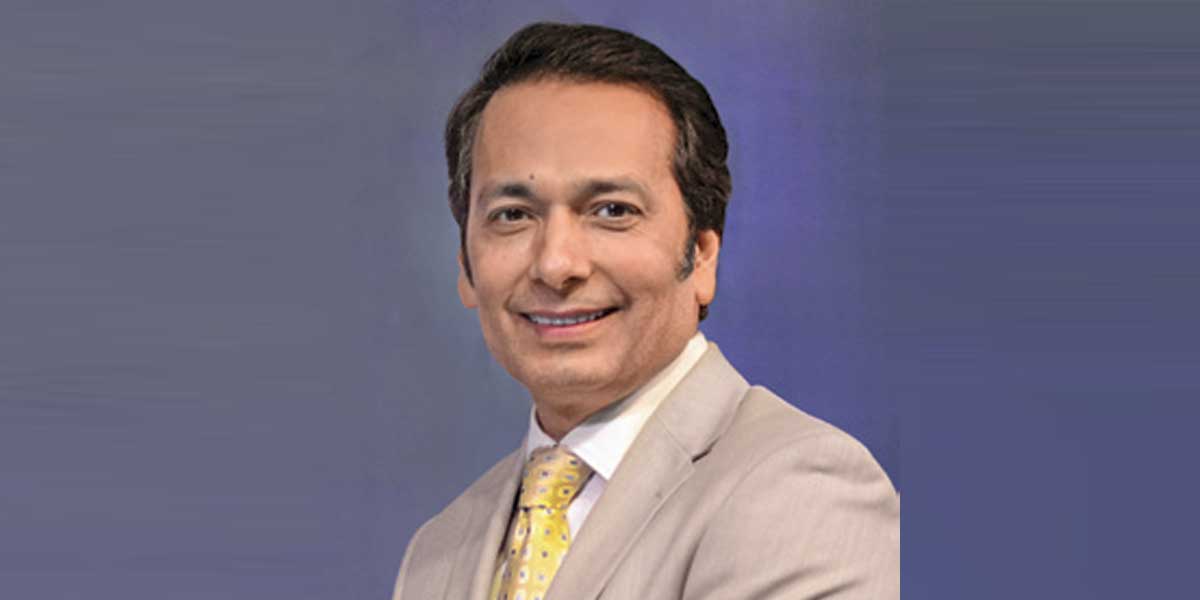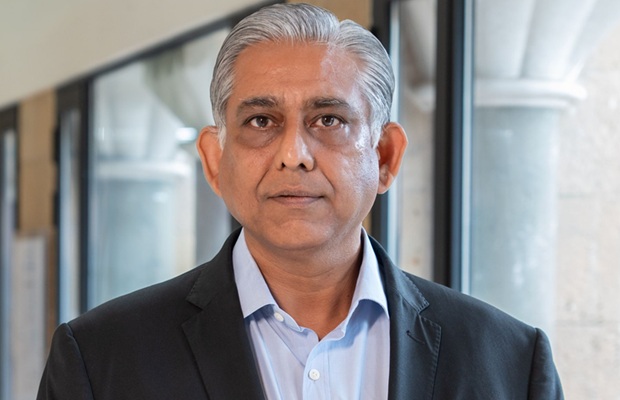Schedule a Call Back
Havells always offers safe, efficient electrical products
 Interviews
Interviews- Jul 30,24
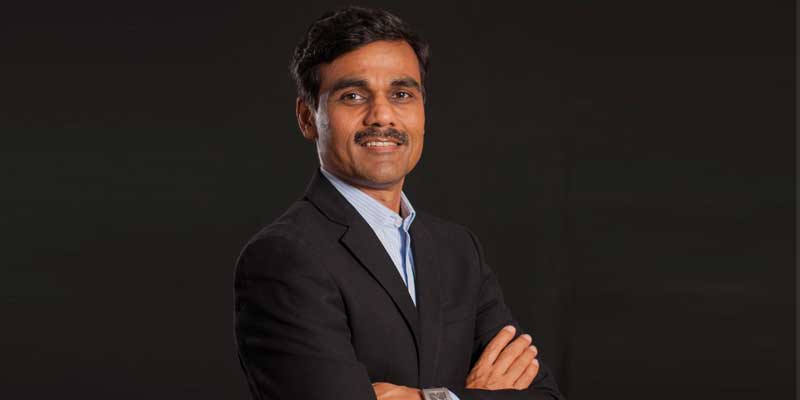
Havells India Ltd - which owns brands like Havells, Lloyd, Crabtree, Standard Electric, Reo and Promptec - is one of the leading players in the fast moving electrical goods (FMEG) industry. Havells, a name synonymous with quality and innovation in the electrical industry, has journeyed from modest beginnings to becoming a formidable player in the global market. In this interview with Rakesh Rao, Saurabh Goel, Executive President, Havells India Ltd, delves into the company’s origins, strategic milestones and product innovations.
Can you tell us about the origins of Havells and its early years?
The origins of Havells date back to 1957-58 when our founder chairman, with just Rs 10,000 rupees in his pocket, started a trading business for power cables in Delhi. In the early years, we primarily dealt with heavy electrical products like power cables and electric metres, which were the core of our business at the time. In 1993, Havells got incorporated on the stock exchange. At that time, we were a relatively small company with an approximate valuation of around Rs 1 billion. Over the years, we have significantly grown, and now we are close to Rs 180 billion company. In the early '90s, our product range was primarily limited to electrical oriented products such as electric metres, cables, and other conventional switchgear products.
What was the major turning point for Havells in terms of product diversification?
The watershed moment for Havells came in 2003 when we decided to diversify into consumer categories. We ventured into the consumer brown goods category, which included products like fans, lighting and switches. This was a significant shift from our traditional heavy electrical orientation, and it marked our entry into the consumer-centric market. Every two to three years, we added new categories to our portfolio. The market was surprised that an electrical oriented company wished to change their market perception and establish a foothold in the consumer goods segment. But we managed to do it.
Can you explain Havells' entry into the consumer electronics market?
In 2017, we entered the consumer electronics market by acquiring Lloyd, a well-known brand in the consumer electronics space. This acquisition marked our foray into products like air conditioners, refrigerators, and washing machines. Initially, we bought the brand and subsequently set up our own manufacturing plants for these products. This move allowed us to expand our product offerings and strengthen our presence in the consumer electronics market.
What are the main sectors in which Havells currently operates, and what is the size of these markets?
Havells operates in five main sectors:
1. Cables and wires: This includes industrial cables and house wires, also known as flexible cables. The market size for cables and wires combined is around Rs 550 billion.
2. Switchgear: This sector includes both residential switches and industrial switchgear. The market size for switches and switchgear combined is approximately Rs 200 billion.
3. Consumer electricals: This includes products like fans, water heaters, kitchen appliances, water purifiers, and air coolers. The market size for consumer electricals is around Rs 400 to 450 billion.
4. Lighting: This sector covers both consumer lighting and professional lighting, including street lighting and RGB lighting. The market size for lighting products is substantial.
5. Consumer electronics: This includes products like air conditioners, refrigerators, and washing machines. The market size for consumer electronics is around Rs 1 trillion.
Overall, the total market size for all these sectors combined is close to Rs 2.2 trillion, and Havells reigns with a market share of about 9-10 per cent.
What is the company's approach to manufacturing?
We have a strong manufacturing setup with 17 plants spread across nine locations. Our most recent manufacturing facilities are in South India. Almost 90per cent of the products we sell are manufactured in-house. We believe in starting with imports or outsourcing to test and learn about the market, but we quickly move to establish our own manufacturing once we understand the market dynamics. For example, we started importing water heaters, but today we are market leaders with our own state-of-the-art manufacturing unit for water heaters, which we launched in 2015 and expanded in 2019.
How do you see the market at the moment?
The market is quite dynamic and varies across different sectors. In the cables and wires industry, there is a lot of traction due to the ongoing infrastructure development. Both the cable and wire industry and the switchgear industry are seeing significant demand. The consumer market, on the other hand, is slowly picking up. Last year was not particularly strong for the consumer industry, but we are starting to see improvements. The infrastructure projects and building segments are driving growth in the switchgear and lighting markets, and we expect this to continue over the next few years.
Can you share some recent innovations?
In the cables and wires division, one of our key innovations is the development of HFFR (Halogen-Free Flame Retardant) wires, which are smokeless wires designed to reduce smoke production during fires. This is important because smoke inhalation is a major cause of fatalities during fires. We have also focused on improving the quality of our wires to reduce energy wastage and increase efficiency.
In the switchgear division, we have introduced surge protection devices (SPDs) that protect appliances from voltage spikes, especially during lightning strikes. We are also promoting earth leakage protection devices (RCCBs), which protect lives by preventing electric shocks. These innovations are aimed at enhancing safety and efficiency in electrical systems.
What role does IoT play in Havells' product offerings?
IoT plays a significant role in our consumer durables category. We have integrated IoT features into products like fans, water heaters, and kitchen appliances. For example, you can control your water heater remotely using a smartphone app, setting it to turn on and off at specific times. We offer IoT functionality either through the product itself or through a smart switch that can be connected to any device. This makes our products more convenient and energy-efficient for consumers.
How does Havells ensure the quality and authenticity of its products in the market?
To combat the issue of counterfeit products, we have implemented several measures. We use advanced 3D QR codes on our products, which are difficult to replicate. We also conduct regular raids to identify and eliminate counterfeit products from the market. Additionally, we invest in training electricians and raising awareness about the importance of using genuine, high-quality products. These efforts help us maintain the integrity of our brand and ensure that consumers receive safe and reliable products.
How important is consumer education in promoting high-quality products?
Many consumers are not aware of the importance of using high-quality wires, switchgear, and other electrical components. By educating consumers about the benefits of high-quality products, such as enhanced safety and efficiency, we can drive demand for better products. We also work with developers and builders to ensure that high-quality products are used in construction projects. Consumer awareness and education are key to creating a safer and more efficient electrical environment.
How does Havells approach sustainability and environmental responsibility?
We focus on developing energy-efficient products that reduce power consumption and lower carbon emissions. For example, our HFFR wires are designed to be environment-friendly by reducing smoke and toxic emissions during fires. We also prioritise the use of recyclable materials in our manufacturing processes. We have also implemented several green initiatives across our manufacturing plants to reduce waste and improve energy efficiency.
What are some of the key challenges facing the electrical industry?
One of the major challenges in the cables and wires division is the availability of raw materials like copper and aluminium, which are subject to market fluctuations. This affects our ability to plan and price our products effectively. In the switchgear division, a significant challenge is the lack of regulation and standardisation in the industry. For instance, the installation of safety devices like RCCBs can be bypassed by untrained electricians, compromising safety. We need stronger monitoring standards and better consumer awareness about the importance of high-quality electrical products.
What trends are you seeing in the market from the consumer and industrial perspectives?
From a consumer perspective, there is a growing trend towards upgrading electrical products for better aesthetics and efficiency. Consumers are becoming more aware of the importance of quality electrical products, although there is still a long way to go. In the industrial sector, there is increasing demand for advanced electrical solutions due to the ongoing infrastructure development. There is also a trend towards integrating IoT and smart technologies in both consumer and industrial electrical products.
What can we expect from Havells in the coming years?
In the switchgear division, we are working on solid-state switchgear, which operates much faster than traditional electromechanical switchgear. This will provide better protection for electrical circuits. We are also developing combined MCCB and RCCB units, known as RCBOs, which are already popular in Europe. Additionally, we are promoting the use of arc fault detection devices (AFDDs) to prevent electrical fires caused by arcing. These innovations reflect our commitment to enhancing safety, efficiency, and reliability in electrical systems.
What are Havells' future plans and growth strategies?
Our future plans and growth strategies focus on expanding our product portfolio, enhancing our manufacturing capabilities, and increasing our market presence. We aim to introduce new and innovative products that meet the evolving needs of consumers and industries. We will continue to invest in manufacturing facilities to ensure high-quality production. Additionally, we plan to strengthen our distribution network and enhance our brand visibility through targeted marketing campaigns. Our goal is to maintain our position as a leading player in the electrical industry and drive sustainable growth in the coming years.
Related Stories
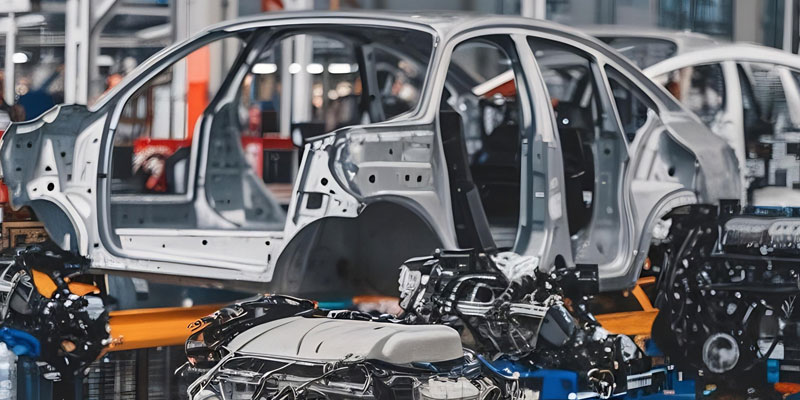
EV transition and tariff wars redefine India’s auto components play
India’s auto component industry is poised to hit $ 145 billion by FY30 from $ 80 billion in FY25. Yet high US tariff, EV transition and heavy reliance on imports from China expose vulnerabilities,..
Read more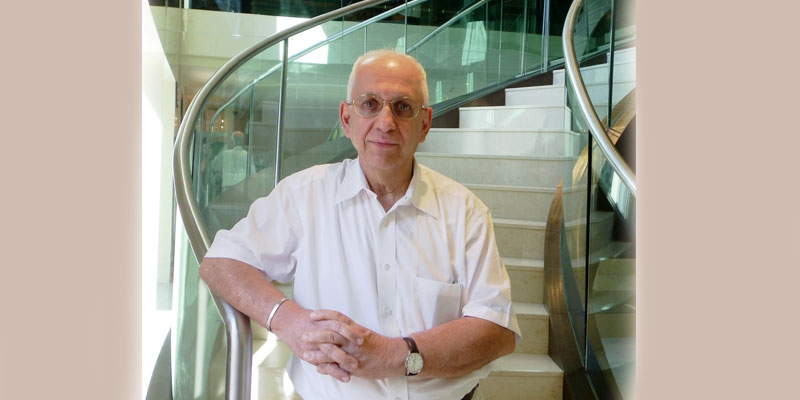
For the foreseeable future, multiple fuels will coexist and grow: Farrokh Cooper
In this conversation with Rakesh Rao, Farrokh Cooper, CMD, Cooper Corporation, shares his views on manufacturing, technology and the road ahead.
Read more
Indian Machine Tools Industry Gains Amid Shifting Global Dynamics
India’s machine tools industry is attracting strong global investment, driven by rising domestic demand, precision manufacturing growth and supply-chain realignments, even as global markets slow. ..
Read moreRelated Products

Integrated Electric Gripper S Series
IBK Engineers Pvt Ltd offers a wide range of integrated electric gripper S series.

Geared Electric Motors
Delco Fans Pvt Ltd offers single phase capacitor run and three
phase geared Instrument motors, totally enclosed face/foot mounted.

“Kusam-Keco” Partial Discharge Acoustic Imager - Model - Km-pdai
‘Kusam-Meco’ has introduced a new “Partial Discharge Acoustic Imager Model KM-PDAI.





